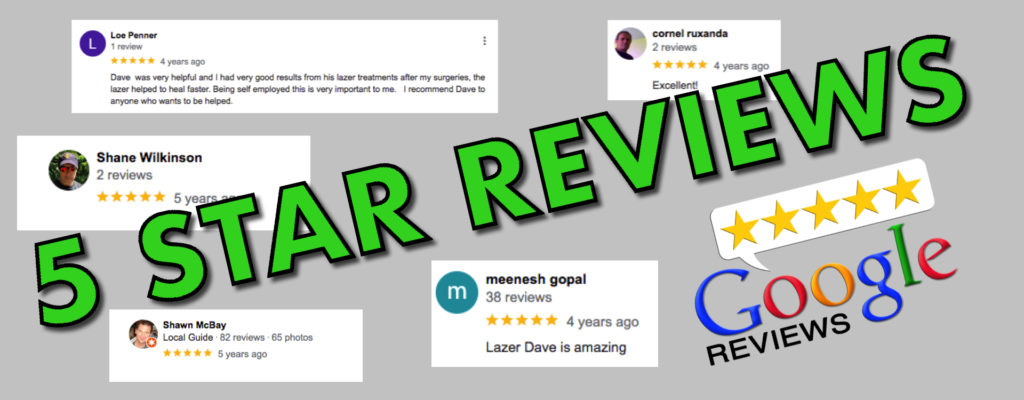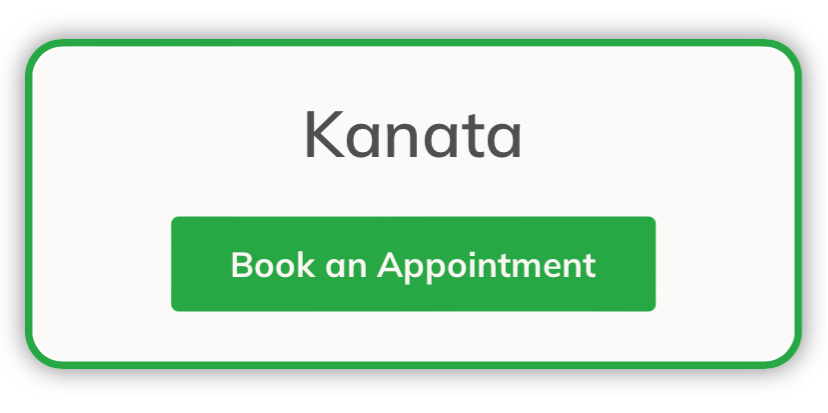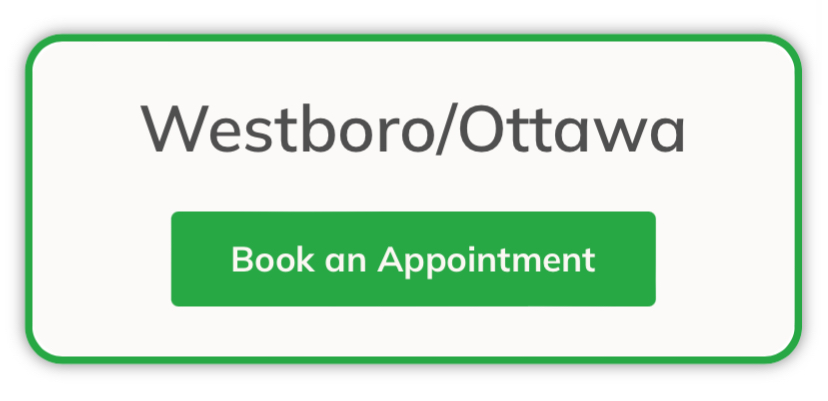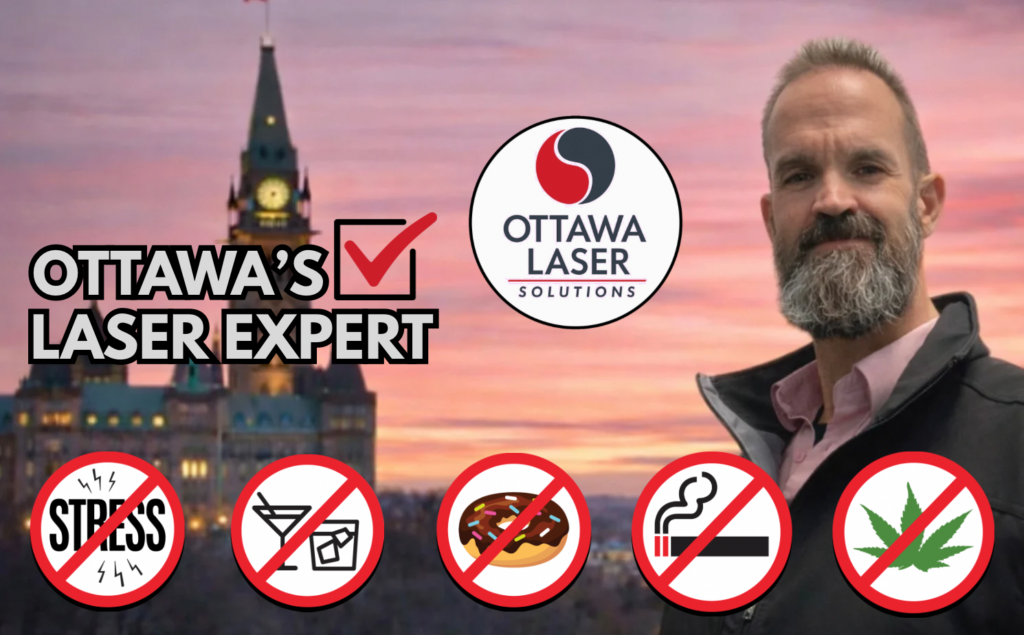
What Is Low-Level Laser Stimulation (LLLS)?
At Ottawa Laser Solutions, our wellness services are built on a foundation of scientific research in a field known as Low-Level Laser Therapy (LLLT) — also called cold laser, photobiomodulation (PBM), or laser acupuncture.
LLLT involves the use of low-intensity laser light applied to specific areas of the body. This technology has been studied for its ability to support natural biological processes, such as circulation, tissue repair, cognitive/neurological benefit, and general stress-related responses. While LLLT is often used in clinical or therapeutic settings, we adapt its principles in a non-medical, wellness-based way — a method we refer to as Low-Level Laser Stimulation (LLLS).
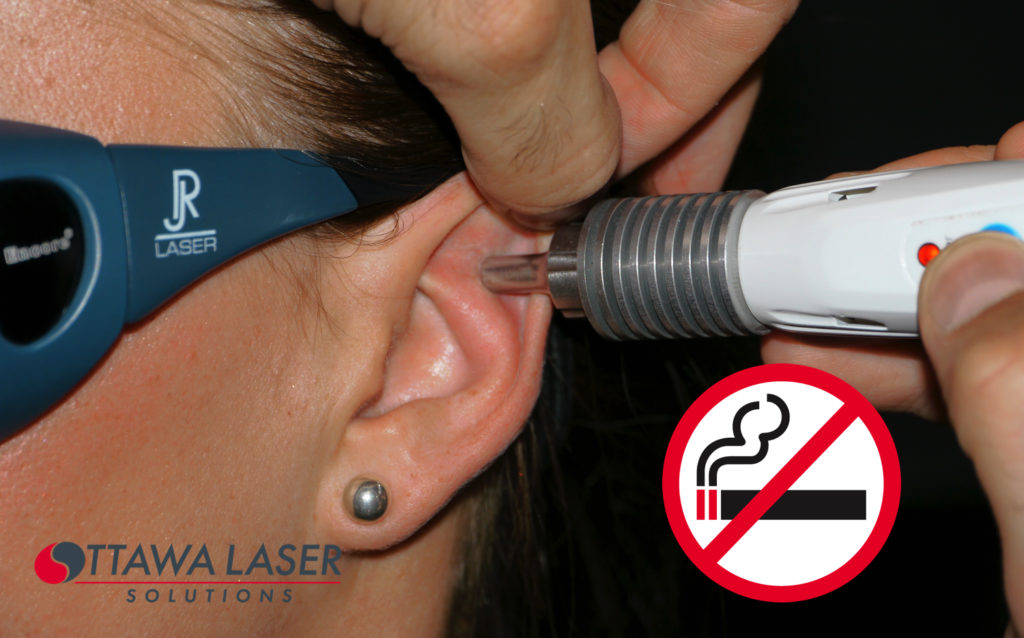
A Gentle, Light-Based Approach
Our approach uses gentle, non-invasive laser light to stimulate specific energy points on the body — including the feet, hands, ears, nose and head. This process is inspired by traditional energy point stimulation systems but also informed by modern studies on light and cellular response.
Clients often describe the experience as calming, centering, and physically relaxing. While individual experiences can vary, many report feeling more at ease following a session.
Historical Context of Low-Level Laser
The term “laser” stands for Light Amplification by Stimulated Emission of Radiation. Since its invention in 1960, laser technology has evolved significantly. In the late 1960s, Hungarian researcher Dr. André Mester observed that low-intensity laser light appeared to support wound healing in animal studies. His early findings laid the groundwork for what is now called photobiomodulation.
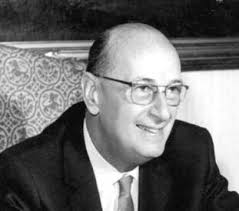
In the late 1970s diode lasers were invented. This allowed low-cost, high-wattage lasers to become marketable, and revolutionized modern society for their application ranging from scanners to CD players, to optical transmission of data. Modern day medical lasers are engineered for the highly therapeutic near-infrared wavelengths 970 nm and 790 nm. Many scientific studies demonstrate that these wavelengths have significant unique properties for cell stimulation.
Over the decades, this field has grown, with researchers in Europe, Russia, and North America exploring how specific wavelengths of light interact with human tissues — particularly in the red and near-infrared range.
How Does Laser Based Stimulation Work?
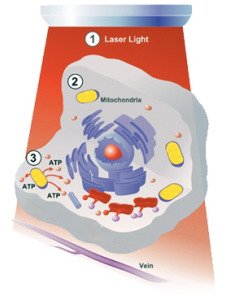
Low-level laser technology delivers energy to the body in the form of photons — tiny packets of light. These photons are absorbed at the cellular level, particularly by mitochondria, which help produce adenosine triphosphate (ATP) — a molecule associated with cellular energy. This interaction can support the body’s natural processes, including circulation, tissue function, and the regulation of stress or tension.
At Ottawa Laser Solutions, laser light is also applied to specific energy points on the body — such as the feet, hands, ears, nose, and head in a way that draws from traditional acupuncture systems. Rather than using needles, we stimulate these points with gentle laser light, a offering a non-invasive and calming alternative.
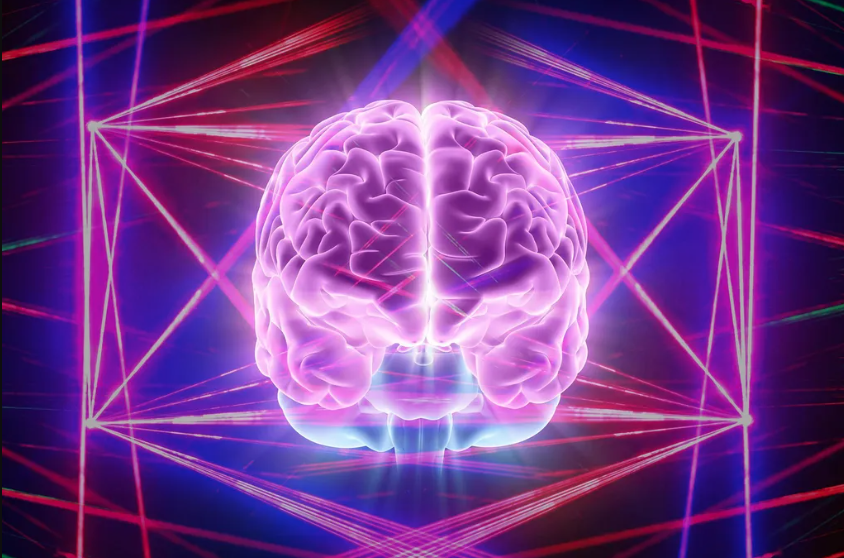
This approach is intended to support a sense of balance and relaxation, particularly for individuals working through habit change or substance-related urges. It is believed that laser stimulation of energy points may help encourage the release of natural neurotransmitters, such as endorphins, serotonin, and dopamine — which play a role in emotional regulation and behavioral reinforcement.
Some researchers have also suggested that light-based stimulation may contribute to neuroplasticity, the brain’s natural ability to adapt and form new patterns. While individual responses vary, many clients describe feeling more centered, less reactive, and more capable of following through on personal goals after their session..
At Ottawa Laser Solutions, laser is used solely in a non-medical context to complement self directed wellness habit changes.
About Ear and Body Point Stimulation

One key area of focus in laser quit sessions is auricular (ear) laser stimulation. This approach draws on ideas from traditional acupuncture and modern neuroscience — particularly the work of Dr. Paul Nogier in France and Dr. Wilder Penfield in Canada, who identified correlations between points on the ear and regions of the body. Of particular note is the potential natural stimulation effects auricular therapy often has on the brain, especially as it relates to habit changes.
Ottawa Laser Solutions uses gentle laser light — not needles to stimulate these ear and body points, offering a needle-free, calming alternative for individuals who are looking for calming, sensory-based wellness support.
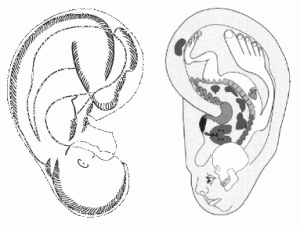
How Laser Light May Support Habit Change
While individual experiences vary, Low-Level Laser Stimulation (LLLS) is offered at Ottawa Laser Solutions as a wellness-based technique that may support the body and mind in several ways. Clients often report the following perceived effects:
Support for Natural Rebalancing
Laser light is believed to encourage activity in cells associated with tissue maintenance and repair. This process may assist the body’s natural rebalancing systems and help promote a sense of physical, mental, and emotional homeostasis.
Reduction in Substance-Related Urges
Many individuals receiving LLLS as part of a self directed habit change process describe a noticeable reduction in the intensity of urges related to nicotine, alcohol, marijuana, and other habitual behaviors. This may support greater follow-through on personal goals, especially when combined with preparation strategies and wellness-focused lifestyle adjustments.
Support for Neuroplasticity and Behavior Change
It is theorized that laser stimulation may contribute to neuroplasticity, the brain’s natural ability to form new pathways and move past outdated behaviour patterns. This potential effect is of interest to individuals seeking to move away from long-standing habits, reinforce new behaviors, and engage more fully with positive lifestyle practices such as movement, mindfulness, or improved self-care.
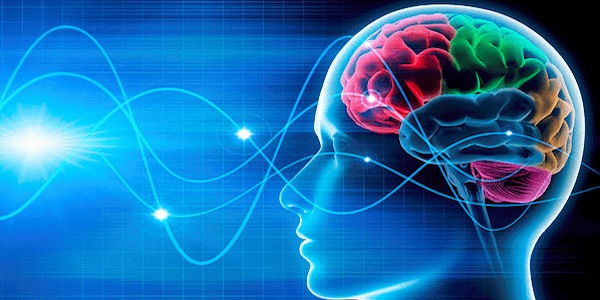
Is Low-Level Laser Stimulation (LLLS) Safe?
Yes. The form of laser used at Ottawa Laser Solutions is non-invasive, low-intensity, and well-tolerated by most individuals. It does not produce strong heat and is not capable of cutting or damaging tissue.
As a standard precaution, protective eyewear is provided and must be worn during all sessions to prevent direct laser exposure to the eyes. Any other potential considerations or sensitivities are discussed individually with clients prior to their first session as part of the consent process.
You can learn more about laser safety in this blog post: Is Laser Safe?.
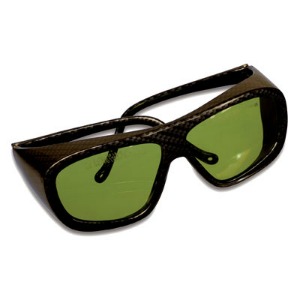
Is LLLS Painful?
No. Low-Level Laser Stimulation (LLLS) is completely non-invasive and gentle. It does not involve needles, pressure, or strong heat. Most clients describe the sensation as neutral or pleasantly relaxing.
Some individuals report positive sensations such as warmth, tingling, or a calming heaviness in the body during or after the session. These responses are temporary and are generally seen as part of the body’s natural adjustment process.
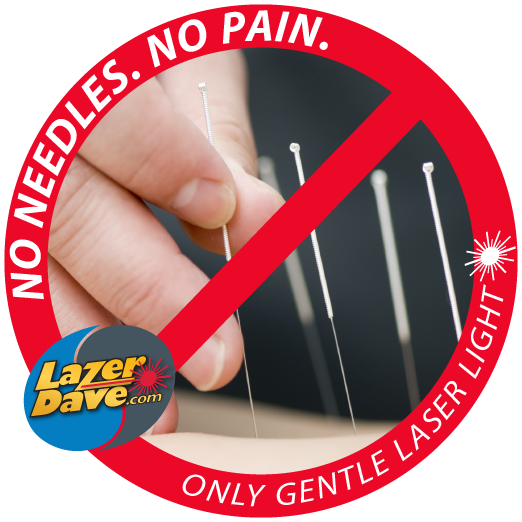
Is Laser Therapy Effective?
There are over 30,000 peer-reviewed studies globally exploring the use of low-level laser and photobiomodulation. These include research on topics like pain, inflammation, stress, and neurological responses. While Ottawa Laser Solutions does not offer medical treatment or guarantee specific outcomes, this growing body of evidence helps inform how low-level laser may interact positively with the body’s natural systems.
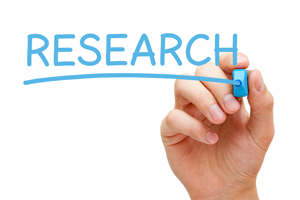
Is There Scientific Research Supporting Laser for Quitting Smoking, Nicotine, Tobacco, Alcohol, & Substance Use?
Disclaimer: These studies are shared for educational purposes only. Ottawa Laser Solutions provides non-medical, wellness-based services and does not claim to diagnose, treat, or cure any medical condition, including substance use disorders.
Laser Acupuncture for Smoking Cessation Study
Emerging scientific studies suggest that low-level laser stimulation of acupuncture points (also known as energy points) may support individuals who are looking to quit smoking by promoting calm, emotional regulation, and a sense of balance.
One such study on Painless Laser Acupuncture (PLA), published in Medical Acupuncture, explored the use of laser stimulation on both auricular and body acupuncture points. Of 24 participants, 21 did not smoke after the laser quit smoking sessions — that is a 87.5% effectiveness rate. The authors noted that this technique appeared to support the body’s natural homeostatic and regulatory processes, which may play a role in smoking cessation.
“The PLA technique for smoking cessation not only helps smokers stop smoking but also restores their homeostasis and good health… the homeostatic and healing processes can be synergized.”
— View Study on PubMed
NADA Ear Acupuncture For Substance Habit Study
Another study involving the NADA auricular acupuncture protocol reported positive outcomes related to mood, energy, and reduced use of tobacco, alcohol, and other substances. At 3- and 6-month follow-ups, participants reported improvements in several wellness-related markers:
“Participation in NADA was positively associated with feeling better about oneself, improved energy, the likelihood of employment upon discharge, and decreased tobacco, alcohol, and illegal drug use.”
— View study on PubMed
Low-energy laser for Alcohol Habit Study
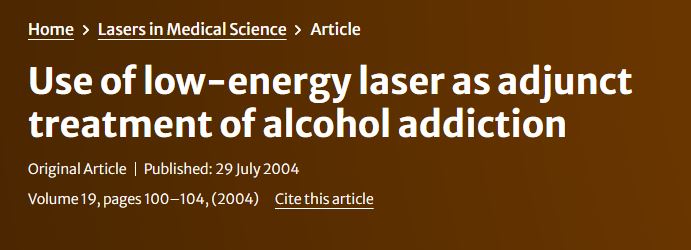
Additional research published in Lasers in Medical Science examined the use of laser acupuncture for individuals with alcohol-related challenges. The findings suggested that low-level laser stimulation of specific points may offer supportive wellness benefits when integrated into broader recovery efforts:
Laser Stimulation as a Research-Inspired Wellness Option
While Low-Level Laser Stimulation (LLLS) as offered by Ottawa Laser Solutions is not a medical treatment, it draws inspiration from this growing body of research related to acupuncture point stimulation and non-invasive wellness support.
Technology Used at Ottawa Laser Solutions
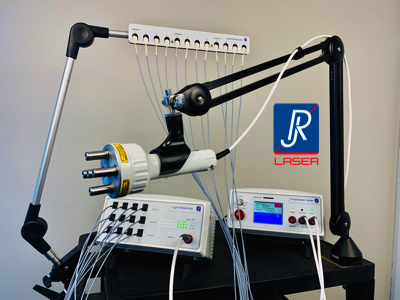
We use advanced laser equipment manufactured by RJ Laser in Germany — a company with over 30 years of experience in laser development. These systems are designed for precision application and are used internationally in a variety of settings, including wellness and research-based environments.
SCHEDULE APPOINTMENTS BY PHONE OR ONLINE

SCHEDULING POLICIES
- $50 Non-refundable Deposit. A $50 deposit is required to confirm all Laser Quit Program bookings. If booking by phone, the deposit must be paid the same day via e-transfer or credit card (see contact details by location below).
If booking online, our Missed Appointment Fee Policy applies instead—authorizing a $50 charge if your first session is missed without notice. - Laser Quit Prep Guide. Once your first appointment is confirmed, you’ll receive a PDF copy of the Laser Quit Prep Guide by email. This guide is a key part of every Laser Quit Program. Lazer Dave will assume you’ve read at least the first two pages and taken reasonable steps to prepare before your first session.
- Second Appointment. Your second session (included with your program fee) will be scheduled at the end of your first visit—typically within 1 to 2 weeks.
- Cancelling/Rescheduling. Please commit fully to your scheduled Laser Quit Session time(s). If you cancel with less than one full business day’s notice, a $50 late cancellation fee may apply. If cancellations or rescheduling become frequent, we reserve the right to discontinue treatment or decline further bookings at our discretion.
SCHEDULE BY PHONE
KANATA PHYSIOCARE — TUESDAYS & SATURDAYS
613-254-5639
ETRANSFER $50 DEPOSIT :
kanata@physiocarephysiotherapy.com
WESTBORO PHYSIOCARE — THURSDAYS
613-722-3769
ETRANSFER $50 DEPOSIT :
ww@physiocarephysiotherapy.com
SCHEDULE ONLINE
STEP 1: Choose clinic location BELOW
STEP 2: “Laser Quit Specialist” under SERVICE CATEGORY
STEP 3: “Laser Quit Program” or “Laser Booster Session” under SERVICE
STEP 4: “1530910 Ontario Limited” under PRACTITIONER
STEP 5: “Select Date & Time” to CONTINUE
PHONE CONSULTATIONS
→ after reading FAQ ←
email dave@ottawalasersolutions.com
text 613-854-6969

Ottawa Laser Solutions, operated by 1530910 Ontario Limited, proudly serves the greater Ottawa area, including Kanata, Nepean, Westboro, Glebe, Barrhaven, Manotick, Stittsville, Carp, Dunrobin, Arnprior, Almonte, White Lake, Pakenham, Mississippi Mills, Carleton Place, Goulbourn, Perth, Smiths Falls, Kingston, and Gatineau.
DISCLAIMER: The Laser Quit Sessions, Laser Quit Programs, and Laser Quit Prep Guide offered by Ottawa Laser Solutions are non-medical, wellness-based supports provided by 1530910 Ontario Limited. These services use Low-Level Laser Stimulation (LLLS) to support self-directed wellness goals and are not intended to diagnose, treat, or cure any medical condition, including substance use disorders related to nicotine, alcohol or marijuana.
These methods are not a substitute for medical care, addiction treatment, or advice from a licensed healthcare provider. Clients are encouraged to consult their doctor before making changes related to the use of medications, substances, supplements, or other health-related routines. Individual experiences vary, and results are not guaranteed.



